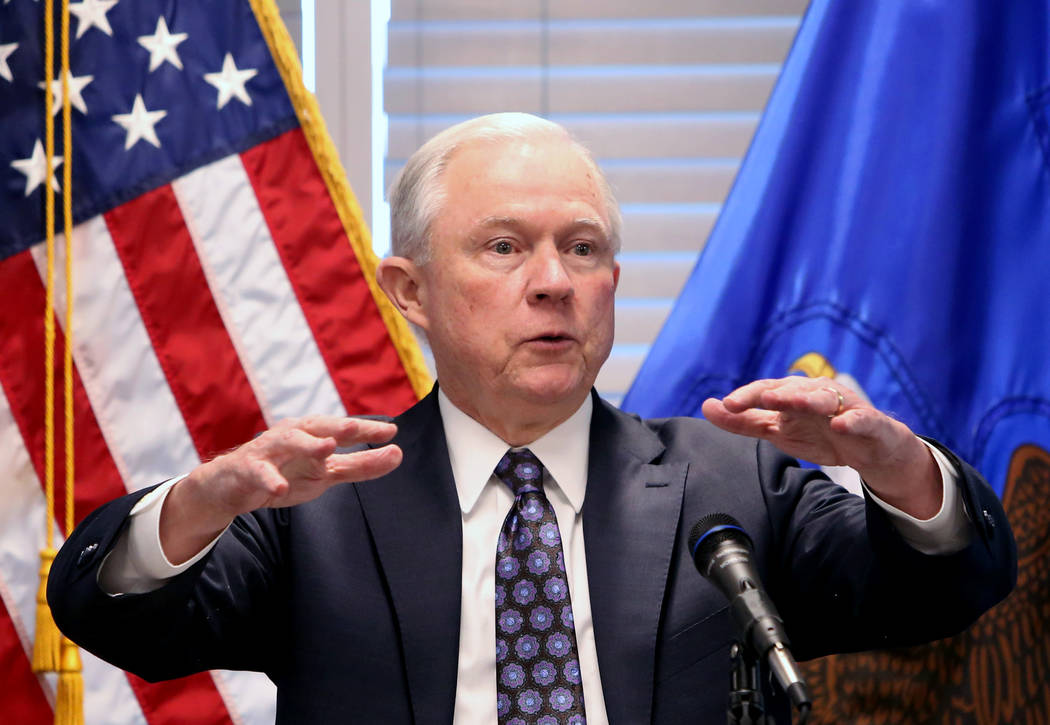
The forced resignation of U.S. Attorney General Jeff Sessions last week has people in the Southern Nevada marijuana industry breathing a sigh of relief.
But time will tell whether President Donald Trump’s administration develops a new stance on legalization of the drug.
“Everybody in the industry is pleasantly surprised that Jeff Sessions is now gone,” said John Laub, president of the Las Vegas Medical Marijuana Association.
Sessions had built a reputation as an obstacle to the marijuana industry, starting before his appointment.
“Good people don’t smoke marijuana,” Sessions, then a U.S. senator from Alabama, said at an April 2016 Senate hearing.
In January, Sessions changed a U.S. Department of Justice rule issued by the Obama administration that said the federal government wouldn’t challenge states that legalize recreational marijuana. Sessions instead directed U.S. attorneys to enforce federal marijuana laws.
The move worried Nevada politicians of both parties that the federal government may challenge states’ rights.
It provoked fear in the local marijuana industry of a federal crackdown on cannabis sellers and growers.
No such crackdown ever came, but Sessions’ presence was enough.
“We know his mere presence as AG scared off some investors, ancillary businesses and others,” said Kevin Sabet, president of anti-marijuana legalization group Smart Approaches to Marijuana, based in Alexandria, Virginia.
Some Southern Nevada stakeholders are optimistic the next attorney general will have a more positive attitude on marijuana than Sessions.
“It’s unlikely that President Trump’s new attorney general will spread reefer madness and misinformation to the same extent that Mr. Sessions has,” said Madisen Saglibene, executive director of the Nevada branch for the pro-marijuana National Organization for the Reform of Marijuana Laws.
Sessions’ forced resignation came one day after medical marijuana ballot measures passed in Utah and Missouri.
Michigan voters also approved a ballot measure for recreational marijuana sales.
The results show more Americans have accepted marijuana, Saglibene said.
Sabet, meanwhile, said election results actually prove that the plant remains divisive nationwide.
North Dakota voters defeated a marijuana legalization ballot measure. And while Missouri legalized medical marijuana, voters in the state defeated other pro-marijuana ballot measures, Sabet said.
One of those measures would have let doctors recommend medical marijuana for certain conditions. The other would have taxed medical marijuana sales at 2 percent instead of 4 percent.
“Marijuana was illegal before Jeff Sessions, during Jeff Sessions, and will be after Jeff Sessions,” Sabet said. “There is a very long and uncertain road to legalization nationally.”